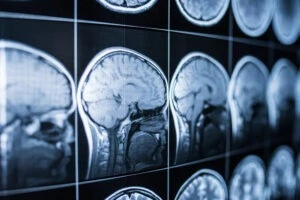
To prove negligence caused a brain injury you or a family member sustained, you need to establish the legally required elements of negligence. The factors needed to prove negligence with a brain injury include the at-fault party’s duty of care, breach of duty, causation, and damages. Proving the elements of negligence without legal support and guidance can be difficult. A Columbus personal injury lawyer can help you build a case file.
The evidence in your case file will generally include your accident report, witness statements, and medical records to indicate the cause of your injury. Your medical records will also document the extent of your injury and the current and future care you will require. The at-fault party may be responsible for paying for all your expenses and losses.
Start Building A Compelling Brain Injury Evidence File Right Away
All negligence-based injuries that lead to personal injury insurance claims or lawsuits are based on the at-fault party’s actions. According to the Legal Information Institute, proving their actions caused your injury means establishing:
- Duty of care — The at-fault party had a responsibility to act fairly and reasonably.
- Breach of duty — The at-fault party failed to avoid neglectful, reckless, or careless actions.
- Causation — The at-fault party’s negligent actions caused your accident and resulting brain injury.
- Damages — Your brain injury had financial consequences.
Your brain injury lawyer will collect evidence on your behalf in an effort to prove these factors. While they focus on recovering financial compensation for you, you can focus on your physical and emotional recovery.
Get A Copy Of Your Accident Report As Soon As It Becomes Available
Insurance companies generally prefer objective information when evaluating your claim. Official police, animal control, or incident reports will generally contain a plethora of objective information that supports your right to compensation, such as:
- Identifying information for the at-fault party
- Contact information for any eyewitnesses
- Accident date, time, and location details
- Accident causes and contributing factors
In most cases, the law firm that handles your case will order these reports for you. If you obtain them on your own, be sure to get a copy to share with your personal injury attorney and one for your records.
Track Your Ongoing Medical Records And Bills
Treatment for a brain injury typically starts at the accident scene and continues until you reach maximum medical improvement. According to the Mayo Clinic, a traumatic brain injury (TBI) can result in severe consequences, such as:
- Headaches
- Vertigo
- Infections
- Seizures
- Blood vessel damage
- Fluid accumulation in the brain
- Coma
- Vision problems
- Hearing loss
- Memory or learning problems
- Communication issues
- Behavioral changes
- Depression or anxiety
- Sensory problems
In some cases, you may require lifelong medical support.
Your medical records are an important part of proving the cause, costs, and extent of your injury. As such, they are a key part of your evidence file. You can request them on your own. However, it might be easier to let your brain injury lawyer obtain these records for you.
Additional Evidence That Creates A Robust Case File
Most personal injury cases are settled out of court when the evidence indicates negligence and liability. Your lawyer will help you complete your case file and negotiate a fair and appropriate settlement.
Additional supporting evidence can include statements from lay and expert witnesses, copies of insurance policies and claim forms, and accident scene and injury photos and videos.
A Personal Injury Lawyer Can Help You Fight for Monetary Compensation After A Brain Injury
Proving these factors and recovering monetary damages can be complex and time-consuming. A personal injury lawyer familiar with state and local laws can help you streamline your case and fight for the best possible outcome for you.
Generally speaking, your lawyer will:
- Collect, organize, and submit your evidence
- Aim to prove the at-fault party’s negligence
- Assess the financial value of your case
- Communicate with the at-fault party
- Locate and interview available witnesses
- Consult brain injury and other medical experts
- Negotiate a settlement on your behalf
- Represent you in court if needed
The TBI lawyer representing you will also ensure they file your case per the applicable statute of limitations. In most Ohio personal injury cases, the statute of limitations is two years, per Ohio Revised Code Section 2305.10. However, this timeline may vary depending on the specifics of your case.
A Personal Injury Law Firm Will Represent You On A Contingency Fee Basis
Are you hesitant to obtain legal representation for fear of the cost? In general, a personal injury law firm will handle your case from start to finish at no upfront or out-of-pocket expense to you.
Typically, you can compensate your attorney with a percentage of your settlement or trial verdict. This fee agreement has two important benefits—it avoids a potentially costly delay of your case and does not add financial strain to an already stressful situation.
Get Legal Support After A Brain Injury Accident
Are you or someone you love living with a brain injury after an accident caused by someone else’s negligence? You do not have to seek financial recovery on your own. Our personal injury team may help you establish the factors needed to prove that negligence caused your brain injury.
Find out how hard we’ll fight for you by contacting one of our case review team members at the Fitch Law Firm LLC today.
